Bretschger, Lucas. "Getting the Costs of Environmental Protection Right: Why Climate Policy Is Inexpensive in the End". Ecological Economics. Accessed January 16, 2025. https://www.sciencedirect.com/...
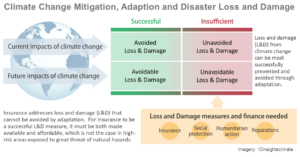
The misconception that stringent climate policies are too costly is widespread among political decision-makers and the public and an often-used argument by governments for sluggish policy making. However, the cost argument ignores the long-term economic benefits of policy changes and is build on the decomposition of environmental impact into separate population, income, and technology effects. This method of decomposing environmental impact calculates costs of climate policy that are far too high. The aggregate economic assessment of climate policies in a holistic economic-ecological system shows economic growth is only initially moderately reduced by a strict climate policy. The cost of climate policy overlooks its long-term benefits, which depend on avoided climate loss and damages.
Posted on 16/01/25
Recent Abstracts
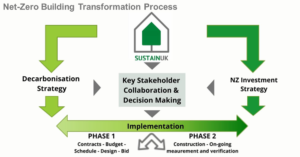
Net-Zero Building Optimisation
SustainUK is inviting you to UK Construction Week London 2022, delivering the largest built environment exhibition at ExCeL London on 3-5 May 2022. SustainUK facilitates and mainstreams Paris-aligned sustainable building development and to overcome real or perceived barriers. SustainUK's collaborative sustainability pr ...
Posted on 03/05/22
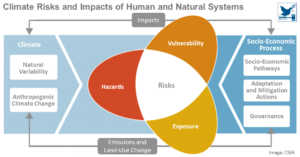
Climate Claims against Governments in Europe
Environmental claims are part of the movement in seeking justice and taking legal action to promote social, economic and environmental sustainability. State and EU-level climate action and policies are being challenged for being insufficient to limit the global average temperature increase to below 2°C, as stipulated i ...
Posted on 02/05/22
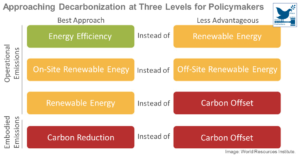
GlobalABC Roadmap for Buildings and Construction: Towards a Zero-Emission, Efficient and Resilient Buildings and Construction Sector
Decarbonizing buildings across their entire life cycle calls for the transformation of the buildings and construction sector. The transformation requires greater collaboration among policymakers at all jurisdictional levels as well as with urban planners, architects, developers, investors, construction companies, and ...
Posted on 29/04/22
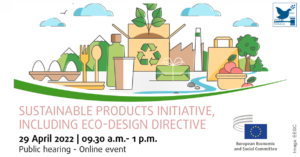
EU Green Deal Product Regulations – What It Means for Design and Construction
The Sustainable Products Initiative (SPI) is a regulatory framework comprising a set of legislative files that aims to boost the circularity of the EU’s single market. The European Commission (EC) proposed the regulation on March 30 2022 intending to make sustainable products the norm in the EU, facilitate circular bu ...
Posted on 27/04/22
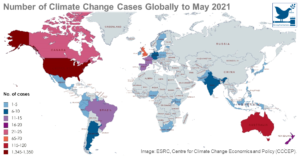
Taking Governments to Court: Climate Litigation and Its Consequences
Climate legal action is increasingly being taken against national governments. Litigation has successfully forced some countries to radically improve on their commitments to tackle the effects and limit the extent of anthropogenic climate change. This paper examines three recent European cases that produced landmark ...
Posted on 23/04/22
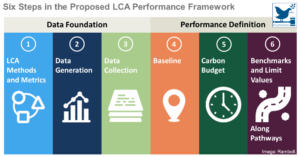
Towards Embodied Carbon Benchmarks for Buildings in Europe – Summary Report
Developers, investors and policymakers must respond with urgency to the threatening climate and ecosystem crisis and set targets aligning with the 2015 Paris Agreement. All participants in the new-build and building renovation value chain must cooperate to establish a standard performance system based on sustainable a ...
Posted on 21/04/22
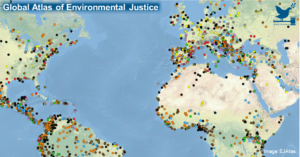
Environmental Conflicts and Defenders: A Global Overview
Environmental defenders are individuals and collectives who take action to protect the environment and to protest unjust and unsustainable use of resources. This paper provides insight on the characteristics of environmental conflicts, the engaged environmental defenders, and successful mobilization strategies. The p ...
Posted on 19/04/22

IPCC WGII Sixth Assessment Report – Technical Summary
There are various global temperature rise and ecosystem impact scenarios, representing uncertainty that affects climate change exposure and vulnerability. This IPCC report summarizes the current understanding of observed climate change impacts on ecosystems, human societies and their cities, settlements, infrastructur ...
Posted on 16/04/22
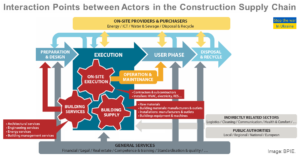
Barriers to Achieving Sustainable Construction Project Procurement in the Private Sector
Sustainable procurement management (SPM) as an approach to integrating sustainability into construction projects that takes into account the social, ecological, and economic consequences of procurement decisions. This study recognizes several challenges that obstruct the effective interaction between stakeholders in a ...
Posted on 14/04/22
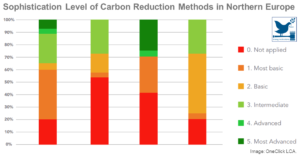
Life Cycle Assessment of Building Materials for a Single-family House in Sweden
This study demonstrates the environmental impact of building materials from production and construction, including transport, replacement and deconstruction, for a single-family house in Sweden. It focused on building materials, materials transport, replacement of essential construction materials, and the environmenta ...
Posted on 12/04/22
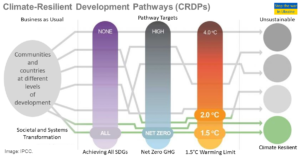
Climate Change 2022: Mitigation of Climate Change – Summary for Policymakers
Under 3.2 °C warming, 49% of insects, 44% of plants and 26% of vertebrates are at great risk of extinction. Best-case scenarios lead to a median range of 2.9–3.2°C in 2100 for current policies and 2.4–2.9°C in 2100 for 2030 pledges. If the targets were promptly and fully implemented, some estimate this could bring te ...
Posted on 10/04/22
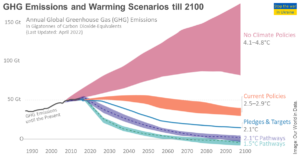
Climate Change 2022 – Mitigation of Climate Change
The world will warm by 3.2°C this century even if all the policies to cut carbon that governments have so far adopted were fully implemented. The high overshoot will increase climate risks for vulnerable regions and societies, causing unprecedented heatwaves, terrifying storms, and widespread water shortages and irrev ...
Posted on 09/04/22

Determining the Sustainability Factors and Performance of a Tourism Destination from the Stakeholders’ Perspective
The development and construction of sustainable tourism destinations ensure that the long-term quality performance of their environment and community life will be sustained. Sustainability is key to managing and maintaining the image and competitiveness of tourism destinations. This study focuses on the future environm ...
Posted on 07/04/22
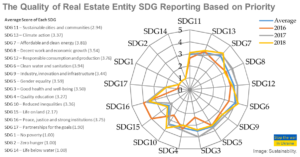
The Involvement of Real Estate Companies in Sustainable Development—An Analysis from the SDGs Reporting Perspective
Most real estate entities lack the strategy, culture and tools to realize their professed sustainability aspirations. They present their intentions mostly qualitatively and report few quantitative key performance indicators (KPIs) that reveal the degree of achieving such priority Sustainable Development Goals (SDGs) a ...
Posted on 31/03/22
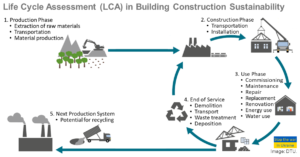
A Methodological Framework for Life Cycle Sustainability Assessment of Construction Projects Incorporating TBL and Decoupling Principles
In construction projects, integration of the three social, economic, and environmental aspects of the triple bottom line (TBL) principle is challenging. Green building rating schemes, such as LEED and BREEAM, fail to fully consider the projects' life cycle sustainability. This study presents a sustainable constructio ...
Posted on 29/03/22

